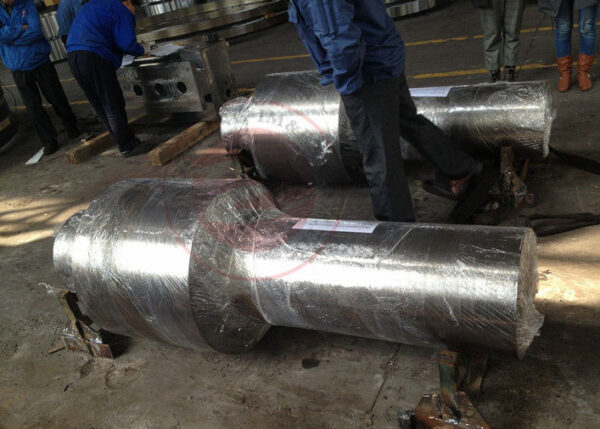Carbon steel manufacturing processes are generally divided into two categories- Forging and Casting. Generally it has been noted that even though castings and forgings have very similar beginnings, the process of forging has a lot of advantages over all other product forms.
Forging: – Carbon Steel Forgings manufacturing process uses high pressure to shape the metal through plastic deformation into parts that have very high strength.
Casting:- This process uses moulds that contain cavities that have the shape of the desired casting. Molten metal is poured or injected into these moulds to attain the desired shape.
If the two methods are compared, the process of forging and forging products are inevitably proved better and are advanced in terms of:-
-
Superior strength of the final parts and the flow of the grain direction.
-
Reliability of the product and its structural integrity.
-
Less control required in its processes and final inspection requirements.
The other advantages of the process of forging over casting include:-
-
Reduction in overall cost
-
Material costs are reduced as the forging process requires less starting metal
-
Tool life savings, lead time and yield machine reserves as less finishing is required to complete the production process in less time and reduced equipment use that leads to less wear and tear
-
Injection rates are reduced as better quality parts are produced that are weld free and hence have improved structural integrity.
-
A wide range of inventory grades is possible through the forging process as any part can be produced from a varied size of billets and ingots. The process is thus given the flexibility of manufacturing any grade quickly and economically.
-
Integrity of Parts
-
The final produced forging product has a higher directional strength, i.e. it produces uniform grain size and flow properties that result in overall superior mechanical and metallurgical characteristics and increased ultimate toughness.
-
A higher degree of structural strength is afforded to the final forging products as the process eliminates gas pockets and voids in the metal to give chemical and physical uniformity. Field load conditions inspire optimum part performance.
-
A higher degree of impact strength is also afforded as the process of forging ensures fatigue resistance and maximum strength impact to reduce total thickness of the sections and overall weight while keeping final integrity of the parts intact.
-
Comparison of the Grain Flow
-
The grain flow of the final forging product is oriented to improve the overall toughness and ductility and increase resistance to fatigue.
-
Flexibility of Parts
-
Through the processes of selection of alloys, configuration of parts and thermal and mechanical working and post production processes, the metallurgical properties can be diversified.
-
Carbon steel forgings in specialized as well as standard shapes like bars, shafts and rings is attainable through the efforts of the forging supplier.
CHW Forge is a forge company guided by stringent quality standards together with forging excellence to create the highest quality forging products. Check out its various products and manufacturing techniques at CHWforge.com and let us know if you can think of any other advantages of forging in the comments below.

